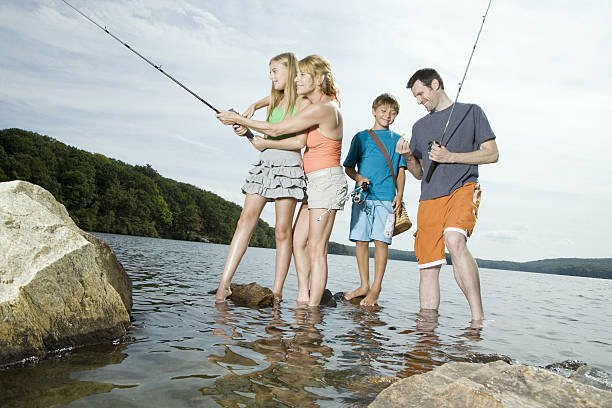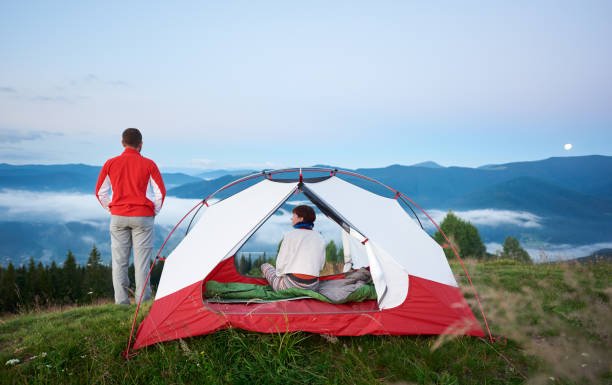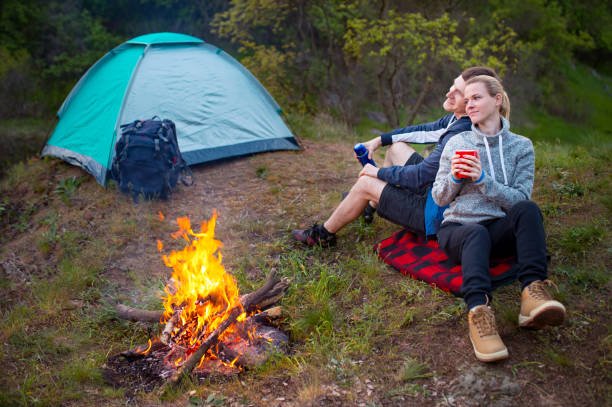Contents
Introduction to Eco-Friendly Camping tips for families
Camping with family is a fantastic way to bond and enjoy nature, but it’s essential to do so responsibly. Discover how you can make your next camping trip eco-friendly.
-
- Choose Sustainable Gear: Opt for eco-friendly camping gear made from recycled materials or sustainable sources.
- Reduce Energy Consumption: Use energy-efficient lighting options and minimize the use of electronic devices to reduce energy consumption during your trip.
- Camp in Designated Areas: Stick to designated camping areas to minimize impact on delicate ecosystems and wildlife habitats.
- Practice Leave No Trace: Follow Leave No Trace principles to leave your campsite as you found it, or even better.
- Teach Kids About Sustainability: Educate children about the importance of respecting nature and minimizing waste while camping.
Eco-Friendly Camping Tips for Family offers practical advice for minimizing environmental impact while enjoying outdoor adventures. From choosing sustainable gear to respecting wildlife and nature, these tips aim to foster a deeper connection to the environment. By implementing eco-friendly practices, families can enjoy memorable camping experiences while preserving natural habitats for future generations.

Essential Gear for Eco-Friendly Camping
-
- Reusable Water Bottles: Bring refillable water bottles to reduce plastic waste.
- Solar-Powered Lights: Use solar-powered or rechargeable lights instead of disposable batteries.
- Biodegradable Toiletries: Pack biodegradable soaps and toiletries to minimize pollution in natural water sources.
- Durable Camping Equipment: Invest in high-quality, durable camping equipment to reduce waste from disposable or short-lived gear.
- Reusable Utensils and Containers: Bring reusable utensils and food containers to avoid single-use plastics.
Minimizing Waste While Camping
-
- Pack Responsibly: Bring only what you need and avoid overpacking to minimize waste.
- Practice Proper Waste Disposal: Dispose of waste properly by recycling and using designated trash receptacles.
- Compost Food Scraps: If permitted, compost food scraps to reduce landfill waste and nourish the soil.
- Avoid Single-Use Items: Choose reusable alternatives for items like plates, cups, and utensils to reduce waste.
- Leave Packaging Behind: Remove excess packaging from food and other items before your trip to reduce waste at the campsite.

Respecting Wildlife and Nature
-
- Observe from a Distance: Encourage your family to admire wildlife from afar, avoiding any actions that could disturb or harm animals in their natural habitats.
- Minimize Noise Pollution: Keep noise levels down to maintain the tranquility of the environment, allowing wildlife to thrive undisturbed.
- Stay on Marked Trails: Stick to designated paths and trails to prevent trampling delicate vegetation and disrupting wildlife habitats.
- Educate Children About Nature: Teach your kids about the importance of biodiversity and the delicate balance of ecosystems, fostering a deep respect and appreciation for the natural world.
Water Conservation Techniques
-
- Collect Rainwater: Utilize rain barrels or other containers to collect rainwater for various campsite needs, reducing the reliance on freshwater sources.
- Use Water-Efficient Appliances: Opt for water-efficient camping gear such as low-flow showerheads and faucets to minimize water usage while maintaining convenience.
- Practice Quick Showers: Encourage family members to take shorter showers to conserve water, especially in areas where water supply may be limited.
- Reuse Graywater: Safely collect and reuse graywater from activities like dishwashing for non-potable purposes such as watering plants or cleaning equipment.
- Fix Leaks Promptly: Regularly inspect and repair any leaks in water containers, hoses, or plumbing fixtures to prevent unnecessary water wastage
Leave No Trace Principles for Families
-
- Plan Ahead and Prepare: Research and plan your trip to minimize surprises and ensure you’re well-prepared for your adventure.
- Travel and Camp on Durable Surfaces: Stick to designated trails and campsites to avoid damaging fragile ecosystems.
- Dispose of Waste Properly: Pack out all trash and dispose of it properly, leaving no trace of your presence.
- Respect Wildlife: Observe wildlife from a distance and avoid feeding or approaching animals to minimize disturbance.
- Be Considerate of Other Visitors: Respect other campers’ experiences by keeping noise levels down and giving them space.
Connecting with Nature Responsibly
-
- Enjoy Low-Impact Activities: Choose activities like hiking, birdwatching, or photography that have minimal impact on the environment.
- Practice Fire Safety: Follow local regulations and guidelines when building campfires, and always fully extinguish them before leaving.
- Stay on Designated Trails: Stick to marked trails to avoid damaging fragile vegetation and soil.
- Leave Natural Objects Behind: Resist the temptation to take natural souvenirs from your camping trip, leaving them for others to enjoy.
- Mind Your Noise Level: Keep noise levels down to respect the tranquility of the natural environment and other campers.

Read Also: How to Plan The Perfect Family Camping Road Trip?
Teaching Kids About Eco-Friendly Camping
-
- Lead by Example: Demonstrate eco-friendly behaviors yourself to show your children the importance of sustainable practices while camping.
- Engage in Nature Activities: Encourage kids to connect with nature through enjoyable activities like hiking, birdwatching, or stargazing, fostering appreciation for the environment.
- Discuss Environmental Impact: Have age-appropriate discussions about how human actions can impact the environment, fostering awareness and understanding in children.
- Involve Kids in Campsite Cleanup: Teach responsibility by including children in cleaning up the campsite, instilling a sense of ownership and respect for nature.
- Encourage Conservation Efforts: Inspire children to take positive action for the environment, empowering them to make a difference through conservation activities and initiatives.
Benefits of Eco-Friendly Camping
Reduced Environmental Impact:
By adopting eco-friendly practices such as minimizing waste and conserving resources, eco-friendly camping helps reduce the negative impact on the environment, preserving natural ecosystems for future generations.
Enhanced Outdoor Experience:
Eco-friendly camping encourages a deeper connection with nature, allowing campers to fully immerse themselves in the beauty and tranquility of the natural world without causing harm to delicate ecosystems.
Educational Opportunities:
Eco-friendly camping provides valuable opportunities for learning about sustainability, conservation, and environmental stewardship, empowering campers, especially children, to become advocates for protecting the planet.
Healthier Lifestyle:
Spending time outdoors in clean, natural environments promotes physical activity, reduces stress, and enhances overall well-being, contributing to a healthier and more sustainable lifestyle.

Community Building:
Eco-friendly camping fosters a sense of community among campers who share similar values and goals, creating opportunities for collaboration, sharing knowledge, and supporting each other in adopting sustainable practices
Also read: How to Go Camping Without a Car
Conclusion: Embracing Sustainable Family Adventures
Camping with your family isn’t just about experiencing the great outdoors; it’s also an opportunity to instill values of environmental responsibility in your children. By embracing eco-friendly camping practices, you not only reduce your impact on nature but also teach your kids valuable lessons about sustainability and conservation.
So, whether you’re roasting marshmallows around the campfire or hiking through the woods, remember to leave no trace, minimize waste, and tread lightly on the earth. With a little planning and mindfulness, you can enjoy unforgettable family adventures while preserving the beauty of our natural world for generations to come.
